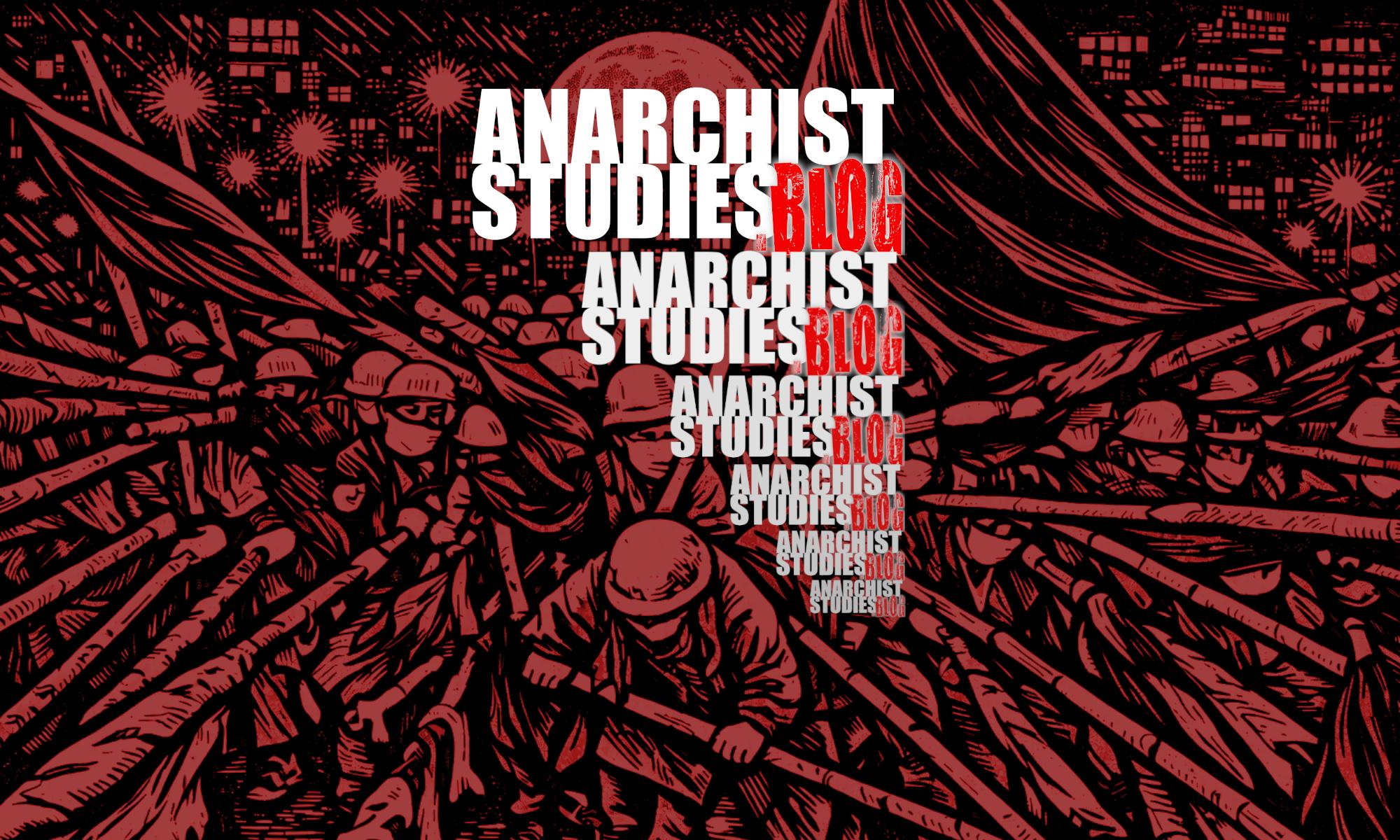by Máirtín Ó Catháin
21st September 2021
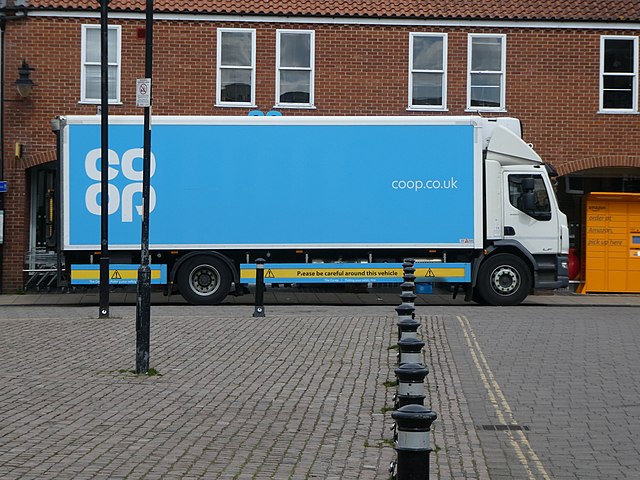
It is a truism that much of Britain’s labour history is teleological, seeing all pre-Marxist labour incarnations as the crude, naïve and underdeveloped clay of the later brutalist edifice of scientific socialism. A central target for such depictions has been the British co-operative movement rooted in Owenite experiments in mutual aid and defined by the mass movement that arose out of the work of the Rochdale Pioneers and their co-operative retail enterprise. Labelled as part of the legacy of bourgeois utopian socialism and decried as being apolitical if not anti-political, the co-operative movement eventually entered the social democratic fold with the emergence of the Co-operative Party in 1917, a force effectively subsumed by the British Labour Party after its 1927 electoral pact. For much of the nineteenth century, however, there is a case for seeing in the co-operative movement the nascent and always flickering flame of anarchist mutual aid, self-organisation and revolutionary anti-authoritarian politics. As a mass movement of the working class aiming to create the conditions for a revolutionary anti-capitalist society in the world as they found it, the co-operators were the unseen anarchists of British history, hiding in plain sight in communities throughout the British Isles. This short article will seek to show the anarchist seeds of the British co-operative movement, its engagement with classical anarchist writers, and its battle to maintain an alternative to state socialism in the co-operative commonwealth.
It was John Quail’s 1978 work The Slow Burning Fuse (thankfully recently re-published albeit with a slightly anomalous, if burning, Union Jack on the cover) that first used as a subtitle ‘The Lost History of the British Anarchists’. The added work of Constance Bantman and Nick Heath complements the original and should be widely read, but the original focus remains tightly drawn for the most part on relatively identifiable anarchists. Vital though that work was and remains, it neglects to contextualise British anarchism fully. Alternatively, more recent academic works by Thomas (2005), Honeywell (2013), Goodway (2007) and Adams (2015) provide thorough, nuanced and stimulating context, but, with the possible exception of Thomas, concentrate largely on individuals and construct prosopographical studies. However, if we look at earlier studies and consider the broader trends in British labour history, we can see that anarchist ideas and influences, far from being the marginal or utopian impulses of a handful of visionaries, artists and intellectuals, were actually mainstream to the development of radical and anti-authoritarian politics within the British working class. The co-operative movements in Britain and Ireland, most often associated with Robert Owen and William Thompson respectively, were at the heart of such politics, and in many ways sought to bring into practical realisation the ideas of William Godwin.
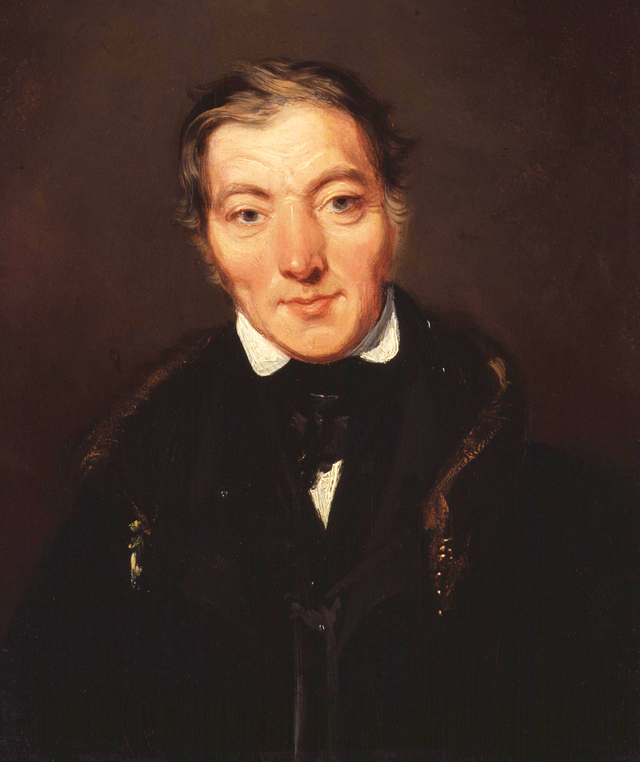
Robert Owen, the father of the British co-operative movement, has sometimes been seen as the first British syndicalist. That, however, was largely built off the back of his Grand National Consolidated Trades Union, something which in itself grew out of the need to support co-operative production. Most historians of anarchism have acknowledged that Owen, as well as William Thompson, was an important early influence on the development of anarchist ideas in Britain. Much of this grew out of Max Nettlau’s assessment:
If I have rightly understood Owen’s ideas, the problem of anarchism as a subject for consideration meant no more to him than the problem of the State. He was, in fact, searching for the best conditions required for an equitable co-operative system, which called for individual competence and goodwill, technical management and the necessary organisers. It was self-evident that in such co-operative organisations, which administer their own activities and are numerous and widespread in all fields of useful and practical interrelationships, the State had no reason for being and there would be no one willing to pay for its maintenance. (1996, p. 26)
Max Beer, Nettlau’s socialist contemporary, whilst recognising the anti-parliamentary components in Owenism and early syndicalism, concentrates instead on their divisions. While it is true that early syndicalists, such as James Morrison and James E Smith, rejected the patricianist and cross-class nature of Owen’s appeal to labour, and in a sense instigated the long-running clash between co-operatives and trade unions, their shared visceral and cerebral opposition to parliament, political parties and conventional power was striking. Such ‘anti-political’ tendencies have been noted by other historians of early socialism, most notably Gregory Claeys (1989) and Stephen Yeo (2017) – indeed the latter has written very perceptively about both the contested legacy of the Co-op in the British Labour Party and its usability today – but neither expressly examines anarchism.
Of course, Owen was long recognised by anarchists as an important influence on the development of the ideology. Although Saint-Simon and Fourier loom larger in the development of Proudhon’s mutualism, Owen’s ideas and fame spread widely, coalescing and clashing with other forms of early socialism. Although acknowledged by Proudhon himself, especially in The General Idea of the Revolution in the Nineteenth Century (1851), as someone whose system of socialism he likens to communism, his references to Owen are fleeting and largely unsympathetic. The reality, of course, was that Proudhon was already developing a scientific socialism that Marx would later adopt, modify and ultimately claim as his own. This therefore put Proudhon on one side of the mid-century debates about the forms of socialism which pre-dated their own. This is something picked up in Iain McKay’s superbly edited collection of Proudhon’s writings (2011), though the footnote on William Morris’s view of Proudhon as a link between the ‘utopians’ and scientific socialists may have been closer to the truth. Mutualism had elements of both utopianism and scientific socialism in going further than Owen (like most ‘Owenites’), before the emergence of debates around collectivism in the 1860s formalised the demise, or evolution of the earlier co-operative vision. Owen himself was unequivocal about the ideas he had helped germinate when considering Proudhon’s anarchism:
M. Proudhon has discovered that all past and proposed governments, as all have been based on the old error of society, are bad, and unequal to make man and society what both should be for the happiness of our race. And he is right … but it does not follow that the population of any country can do without governing arrangements. (in Claeys 1989, p. 99)
What those ‘arrangements’ might be and whether they can be equated with the state is obviously a different question, but Owen’s fundamental belief in the sage advice and patronage of enlightened individuals like himself was a model out of favour by 1848 (see the recent special edition of History of European Ideas, ‘Robert Owen and Continental Europe’ edited by Drolet and Frobert (2021)). By contrast, the name and ideas of Proudhon were known, discussed and celebrated among British workers in the same period, with the Chartist paper, the Northern Star, condemning the closure of his own newspaper and imprisonment in 1849.
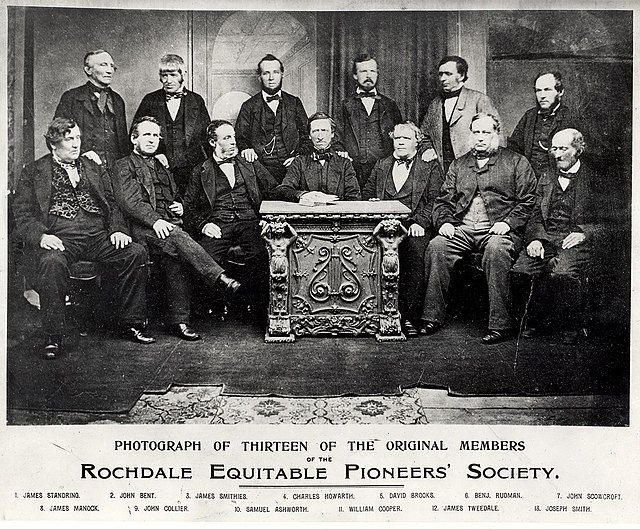
It was perhaps Marx’s popularisation of the scientific versus utopian socialist dichotomy that led to Bakunin’s lack of interest in the ‘idealism’ of the co-operators and mutualists. Kropotkin, however, was somewhat different and his many years in England probably gave him a greater understanding of Britain’s organic anarchism. Kropotkin wrote favourably about Owen, Britain’s co-operative movement, and its great lifelong propagandist George Jacob Holyoake. Kropotkin is probably key among all anarchist writers in appreciating the co-operative instinctual revulsion against government and conventional ‘politics’, its innate working class character, spirit of self-organisation and monumental achievements. He was also alive to some of its flaws and foresaw the problems these would cause in the twentieth century. In Mutual Aid he wrote of how it ‘tends to breed a co-operative egotism, not only towards the community at large, but also among the co-operators themselves’, but that it nonetheless was a movement that had completely absorbed the mutual aid ideas of its birth (1914 [1902], p. 271). Kropotkin therefore recognised something in the movement that was essentially his movement, motivated by the same ideas and hopes for a world without capitalism built from the bottom up by workers themselves and with enough of its original ethos and values at the start of the twentieth century still in place (especially in the North of England). In fact, Kropotkin argued that workers in Britain clung to the Co-op not merely for the much-abused dividend or its lively social calendar, but because of its persistence in the belief of the co-operative commonwealth. Salvation was not to come from or through the state, and although a political party emerged in 1917 to advocate for the co-operative cause with the Labour Party, many co-operators retained a healthy scepticism about political parties.
Like some of Proudhon’s works, the writings of Kropotkin proved popular with many in the Co-op, something which has remained a facet of the movement – Mutual Aid in particular is still well-known and well-loved by many leading co-operators. The movement’s newspaper, the Co-operative News, and its Scottish equivalent, the Scottish Co-operator, were both to feature Kropotkin’s writings over the years, as indeed they did with some of Tolstoy’s anarchist writings. Kropotkin was invited to contribute to the Co-operative Wholesale Society’s magazine, the Wheatsheaf, and over the years wrote enthusiastically about their bread production capacities in Fields, Factories and Workshops (1899). This aspect and the wider role envisaged for co-operatives in revolutionary movements is captured in Pataud and Pouget’s Syndicalism and the Co-operative Commonwealth (1913) (first translated as How Shall be Bring About the Revolution (1909)), where the way has been prepared by both the distributive and productive co-operatives across the world. This work in English translation, with a preface by Kropotkin, also includes sketches by Will Dyson from the Daily Herald and a foreword by Tom Mann. The edition is clearly directed at British co-operators and might be seen as the culmination of anarchist attempts to influence Britain’s Co-op movement from the 1890s onwards. Mann notes that co-operatives are central to the plans for revolutionary change contained in the book, that ‘change is made easy where co-operation is known’, and ends by urging all workers to be involved in the Co-op (in Pataud and Pouget 1913, p. x).
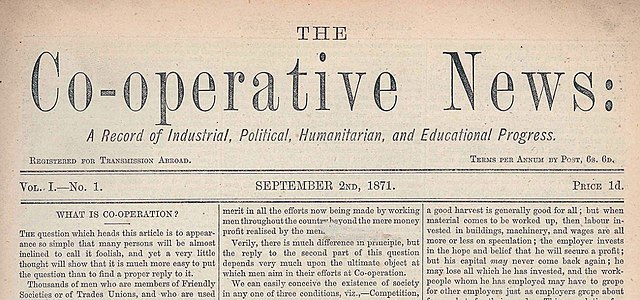
When most people today think of the Co-op, they probably think of the supermarket and associate it with those less well-known outlets who specialise in not very cheap convenience and lag far behind the bigger stores. Among an older generation there may well be a flicker of nostalgia, particularly in working class communities, where the local Co-op, the ‘divi’ and people’s individual membership numbers recall its place in the physical and emotional environment of an earlier time. On the left, it tends to signify a largely sunken heritage of failed experimentation connected to communes and the early schemes of so-called ‘utopian’ socialists. Among anarchists, who have occasionally shared some of Marx and Engels’ disparaging portrayal of those socialist pioneers, there is a more broadly positive attitude towards the co-operative movement and some recognition of its linkages with anarchism as idea and practice, primarily perhaps via Proudhon. Much, however, has been lost, and the failure to see the essence of anarchism, both unconscious and conscious (if often undeclared), in Britain’s co-operative movement awaits rectification.
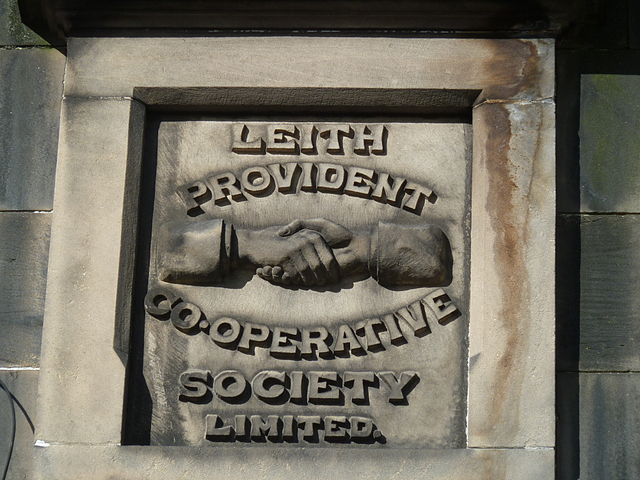
An expected objection is the gradualist or conservative nature of the co-operative tradition, content with a slowly evolving process of change by consent and persuasion, explicitly opposed to the sudden transformative break and potential of revolution. This gradualism has often been the implied preference of the British, or English, working class who unlike their continental brothers and sisters don’t ‘do’ revolution. Certainly, this has been an important founding myth of the British Labour Party and was imbibed fairly uncritically by many other ‘revolutionary’ sects on the British left for over a century. The retail and wholesale format that was overwhelmingly adopted by the British co-op movement is another common complaint. Whilst producer co-operatives were popular with anarchist writers and activists, the retail model was much less known and understood. Although founded on the same broad principles governing co-operative production, as evidenced by the Rochdale Pioneers in 1844 with their combination of self-help and mutual aid, for some the ‘Co-op shop’ appeared as either a naïve or cynical invention. Naïve because it suggested the working class could shop their way to political and economic freedom, or cynical in that it aimed to exploit the baser instincts for a fleeting bargain or the savings and deposits small-mindedness of the petit-bourgeoisie. Of course, from its inception the British co-operative movement saw both retail and producers’ co-operatives as inherently linked and the Co-operative Wholesale Society (CWS) which emerged in the 1860s was organised specifically to supply the shops and challenge the power and influence of their rivals in the commercial sector. Similarly, co-operative land and building projects, educational endeavours, cultural activities and women’s equality were outgrowths of, and aspects funded by, the massively successful and fully de-centralised shops. At the heart of all this commercial activity, however, as Peter Gurney has most famously argued (1996), were the democratic politics of working class consumers who not only wanted control of their own lives during a time of great hardship and poverty in the nineteenth century, but saw this as part of a wider struggle for emancipation. It is perhaps this area of the politics of consumption that anarchists have most frequently baulked at and maybe not fully understood, in spite of the work of Proudhon and Kropotkin and the re-popularisation in recent years of alternative democratic forms of non-state economic strategy with co-operatives at their heart.
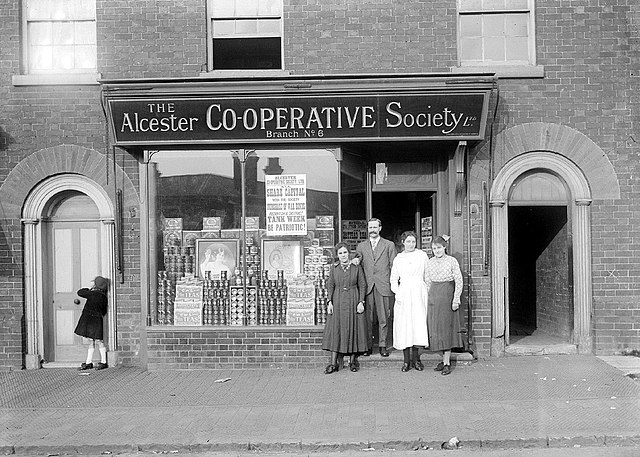
This is not a plea for anarchists to suddenly start shopping, nor indeed to join the Co-op, though both activities are relatively harmless and useful in their own right. The colonisation of co-operatives has been attempted before and, as anyone who has seen the recent ‘Co-op Wars’ (Warner 2021) will be aware, such Leninist-style entryism did little to advance social revolution whatever other effects it happened to generate. Besides, the Co-op in Britain was that strange amalgam of a movement both inherently revolutionary, yet essentially opposed to revolution. It remains a central element in Britain’s anarchist tradition – millions of workers were attracted to its libertarian and mutual aid ethos, and for most of its history kept alive the idea that the movement was about changing things in the world as they found it. Undoubtedly, it drew upon the peculiarly English traditions of thrift and self-reliance, not far removed from the bourgeois liberal caricature of the shopkeeper, and, as noted in Taylor and Enderby’s (2021) attempt to trace the roots of the English radical tradition, it often elided Scottish and Welsh particularities as well. Nevertheless, in its own humble and odd way, the Co-op is an imperfect manifestation of a native British anarchism as mass movement that remains barely recognised. It’s about time we changed that.
Bibliography and further reading
Matthew Adams, Kropotkin, Read and the Intellectual History of British Anarchism: Between Reason and Romanticism (London, 2015)
Max Beer, A History of British Socialism (London, 1921)
Gregory Claeys, Citizens and Saints: Politics and anti-politics in early British socialism (Cambridge, 1989)
Michael Drolet and Ludovic Frobert (eds), ‘Robert Owen and Continental Europe’, History of European Ideas, Vol. 47, Issue 2 (2021)
David Goodway, Anarchist Seeds Beneath the Snow: Left Libertarian Thought and British Writers from William Morris to Colin Ward (Liverpool, 2007)
Peter Gurney, Co-operative Culture and the Politics of Consumption in England, 1870-1930 (Manchester, 1996).
J.F.C. Harrison, Robert Owen and the Owenites in Britain and America (London, 1969)
George Jacob Holyoake, The History of the Rochdale Pioneers (London, 1900)
Carissa Honeywell, A British Anarchist Tradition: Herbert Read, Alex Comfort and Colin Ward (London, 2013)
Ruth Kinna, The Government of No-one: The Theory and Practice of Anarchism (London, 2019)
Peter Kropotkin, Mutual Aid: A Factor of Evolution (London, 1914)
Peter Kropotkin, Fields, Factories and Workshops (London, 1909)
Iain McKay, Property is Theft!: A Pierre-Joseph Proudhon Anthology (London, 2011)
Max Nettlau, A Short History of Anarchism (London, 1996)
Emile Pataud and Emile Pouget, Syndicalism and the Co-operative Commonwealth (Oxford, 1913)
John Quail, The Slow Burning Fuse: The Lost History of the British Anarchists (London, 2019)
Antony Taylor and John Enderby, ‘From ‘Flame’ to Embers? Whatever happened to the English radical tradition c.1880-2020?’, in Cultural and Social History, Vol. 18, Issue 2 (2021), pp. 243-64.
Matthew Thomas, Anarchist Ideas and Counter-Cultures in Britain, 1880-1914: Revolutions in Everyday Life (London, 2005)
Deacon Warner (dir.), The Co-op Wars (2021), available at: http://www.radicalrootsfilm.com/
Stephen Yeo, A Useable Past: The History of Association, Co-operation and Education for Un-Statist Socialism in 19th and 20th Century Britain Volume 1: Victorian Agitator George Jacob Holyoake (Brighton, 2017)
